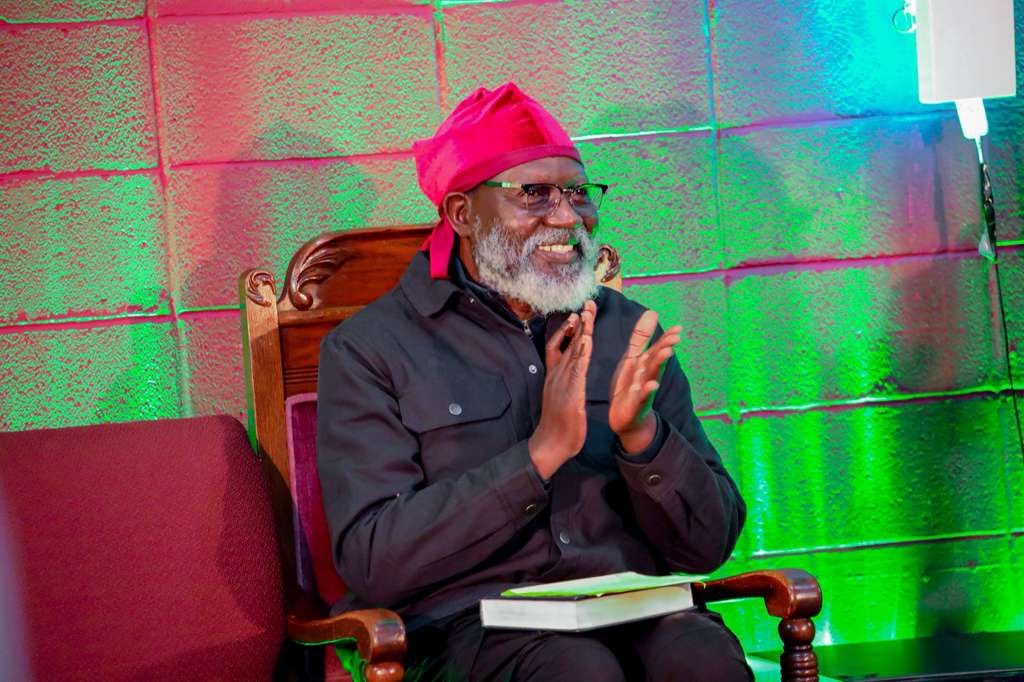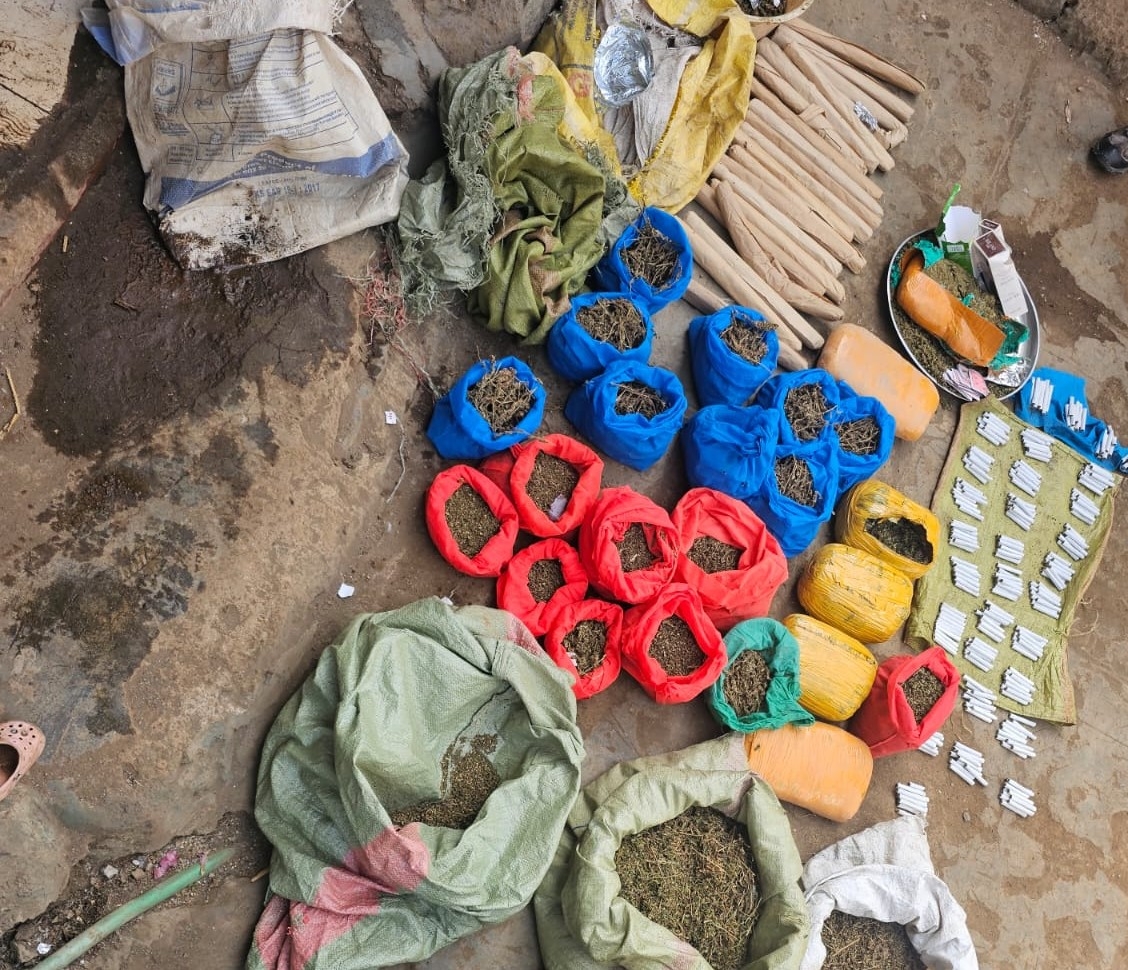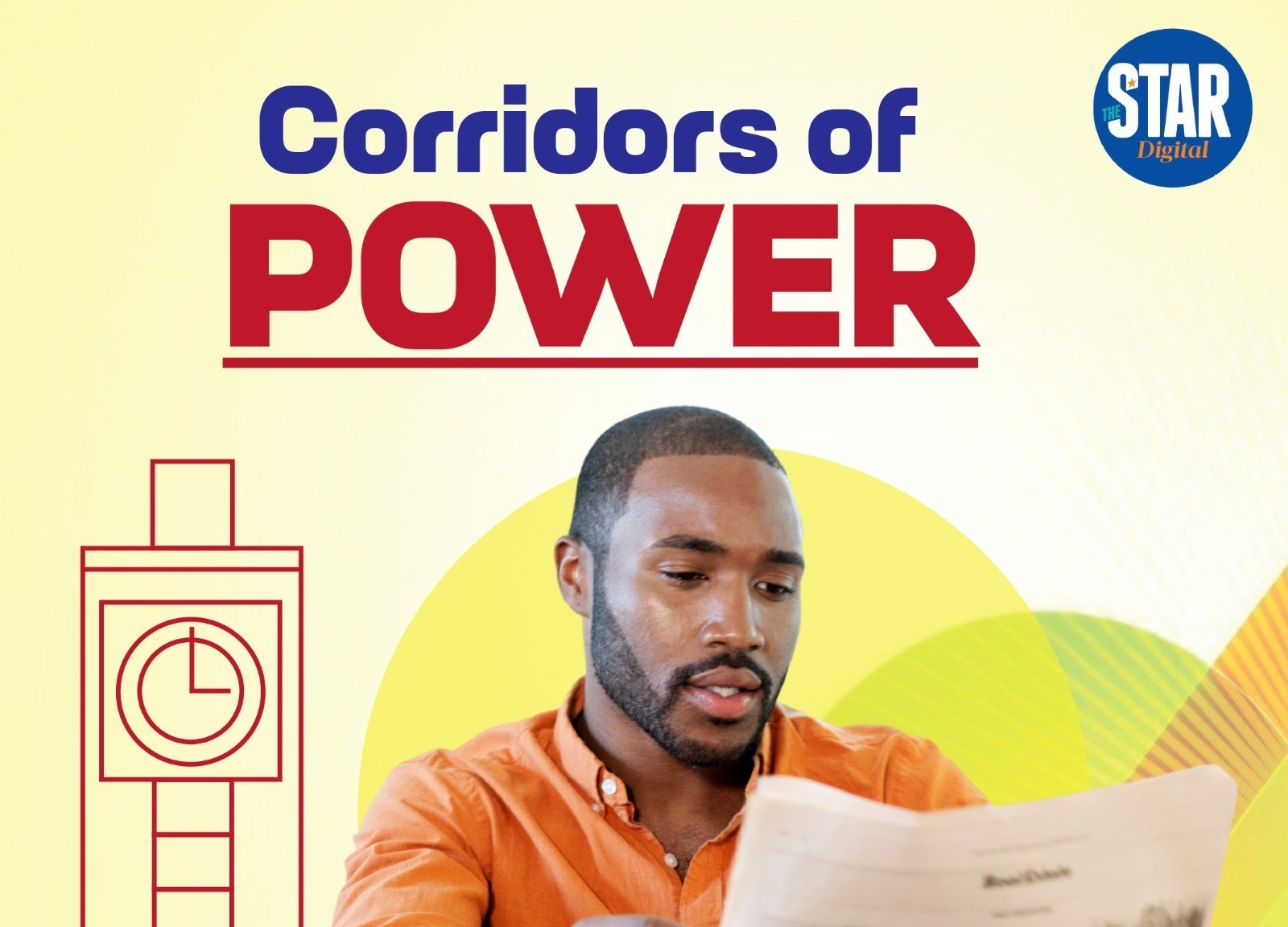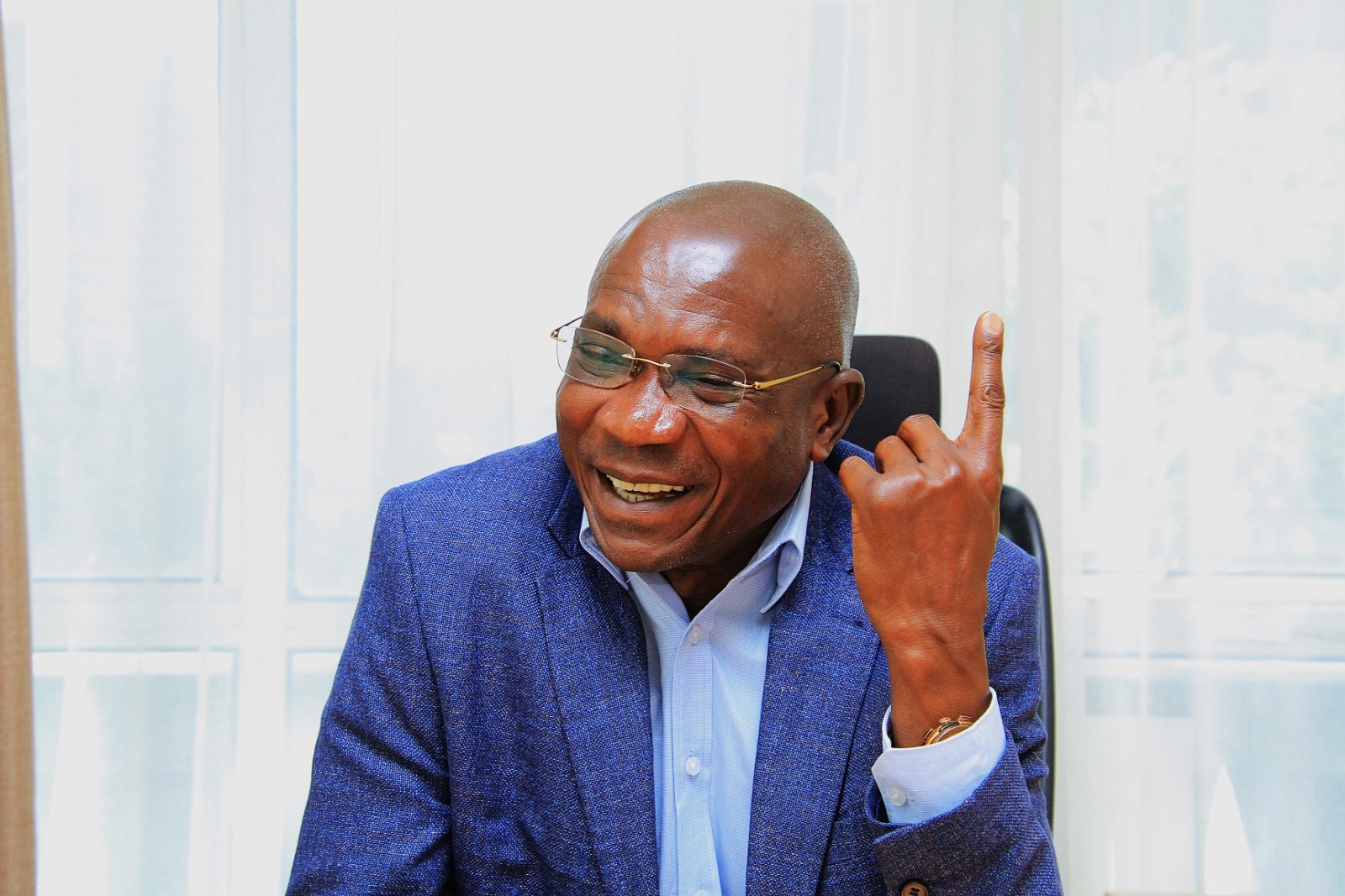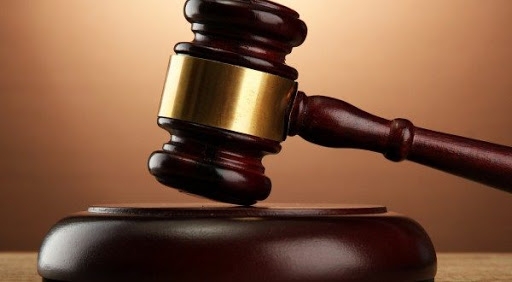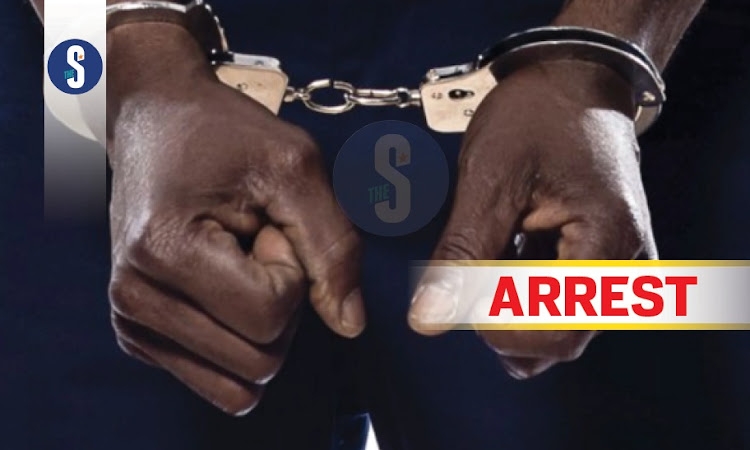
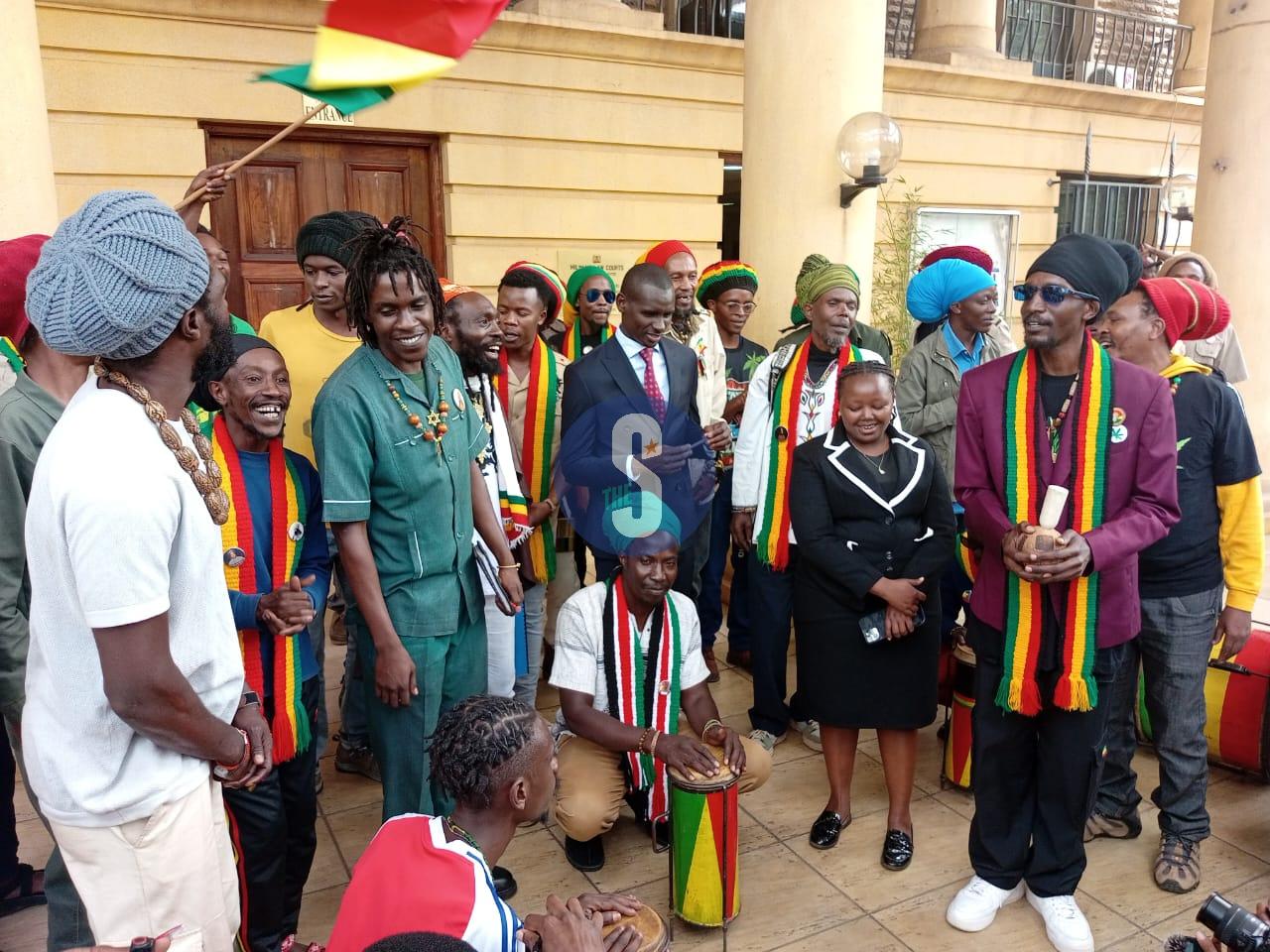 Rastafari Society of Kenya at the Milimani law court on November 18, 2025/JAMES GICHIGI
Rastafari Society of Kenya at the Milimani law court on November 18, 2025/JAMES GICHIGIRastafari Society of Kenya (RSK) has renewed its call for recognition of its faith and the legalisation of cannabis, as the High Court scheduled hearing dates for its long-running constitutional petition.
The group, which has consistently argued that cannabis is central to their spiritual practice, argues that criminalising its use violates their constitutional rights to freedom of religion, privacy, and equality.
Through their legal team, they are asking for their recognition and for the court to consider suspending sections of the law that criminalise cannabis use.
In a show of cultural expression outside the court, members of the society broke into song, chanting lyrics rooted in Rastafarian beliefs.
Clad in traditional regalia, they carried symbolic calabashes calling for respect and non-discrimination of their faith.
One of the group’s iconic representatives passionately stated, “Marijuana was brought by the Almighty to this land. Now they are saying it's not good. Tunakula nganja alafu unashikwa! [we use it, then get arrested]. Whoever says it should not be legalised or decriminalised must bring us evidence.”
He went on to draw contrasts with other substances: “Hard drugs are bad. Even athletes have been found with drugs, yet nobody arrests them. Why target us?”
The group insists their faith has been marginalised, arguing that other communities continue to enjoy constitutional protection of their customs without harassment and stigmatisation.
“The others; Hindus, njuri njeke, practice their cultures uninterrupted; the constitution provides no discrimination. All they are asking is for the same rights to be extended to them,” their lawyers led by Shadrack Wambui and Danstan Omari told journalists outside court precincts.
The Rastafarians arrived at the High Court waving three flags — the Kenyan national flag, one symbolising Black supremacy, and another representing unity among African nations.
They passionately sang songs with lyrics like, “Science and physics come from ancient Africa… let’s come together for Ancient Africa,” echoing their call for cultural recognition and unity.
The High Court set the hearing for January 14 and 15, 2026.
The Rastafarian Society hopes this will mark a
turning point in their quest for recognition and decriminalisation of cannabis
for religious use, a battle they describe as deeply spiritual and
constitutionally grounded.
Earlier in 2021, the society filed an application seeking to suspend the implementation of some sections of the Narcotic Drugs and Psychotropic Substances Control Act.
These sections mandate the arrest, prosecution and conviction of Rastas for growing and using cannabis in their private homes and designated places of worship.
“The impugned provision is an invasion of Rastas' privacy right under Article 31(a) and a contravention of Rastas' freedom to manifest their religion under Article 32 of the Constitution,” the Rastas' petition reads.
The RKS also seeks to have their case referred to the Chief Justice to appoint a bench of judges to hear the case. They say their case raises substantial questions of law.
According to court documents, the Rastas outwardly manifest their beliefs and dedication to God by growing rastas or dreadlocks and by sacramental community achieved through the use of "the holy herb" (bhang), which is prohibited by the total prohibition of cannabis..


